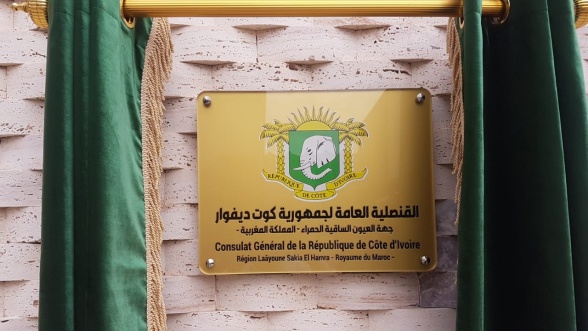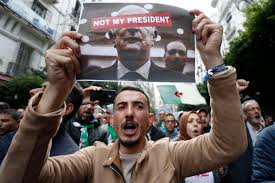Dozens of former Algerian soldiers have staged a sit-in protest near the Tunisian border to demand a pension increase amid soaring food prices and shortage of staple products fueling widespread popular discontent.
These disgruntled ex-soldiers gathered near the borders to vent out their anger as all demonstrations against the military regime have been banned since 2001.
A viral video posted on youtube (https://youtu.be/bdAVEA1Il0w) shows a group of these ex-military-men marching towards the Tunisian border. The protestors demand an urgent rise in their meager pension and better healthcare in military hospitals. Those who have been discharged want to be reinstated or given retirement pay for their service.
Some of these soldiers are also demanding official recognition of their anti-terrorist action during the “Black Decade” of the 1990s that claimed the lives of some 200,000 civilians.
Beset by severe socioeconomic grievances exacerbated by corruption, oppression and deep political crisis, Algeria is now facing uncertainties and unprecedented crises.
Algerians of all walks of life struggle daily to get food, water, medicine, cooking oil, milk, gas … though their country, an oil and gas producer, is member of the OPEC.
In reality, food shortages are not a new phenomenon, but rather the outcome of a broken socioeconomic model. Algeria’s post-independence social contract was founded on an economic system that now costs more than the country can afford given its revenues. Despite the recent rise in oil prices, Algeria is paying the price of its economic choice to buy social peace. After the events of 1988, the ruling elite realized that maintaining its hold on political power depended on its capacity to provide for the disadvantaged, the “silent majority” that makes up the popular base of the Algerian system.
As a result, over the past three decades legislators approved a series of executive decrees that limited the price of basic necessities. This plan was meant to stabilize the situation of the poorer classes of society, but it eventually resulted in a noticeable decline in local distributors’ profit margins after the global increase in prices. Some distributors would naturally prefer to sell their products at black market rates to avoid the official price controls, particularly as production costs continue to rise due to recent restrictions on imports.



